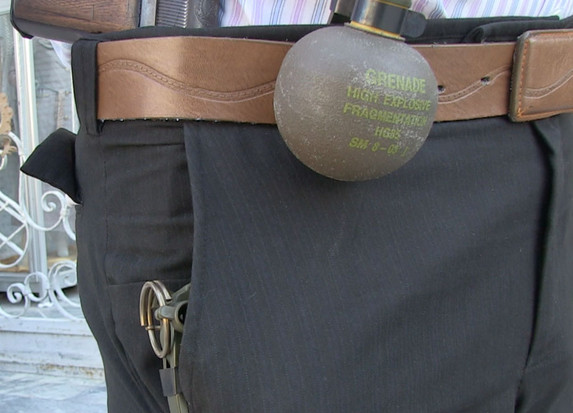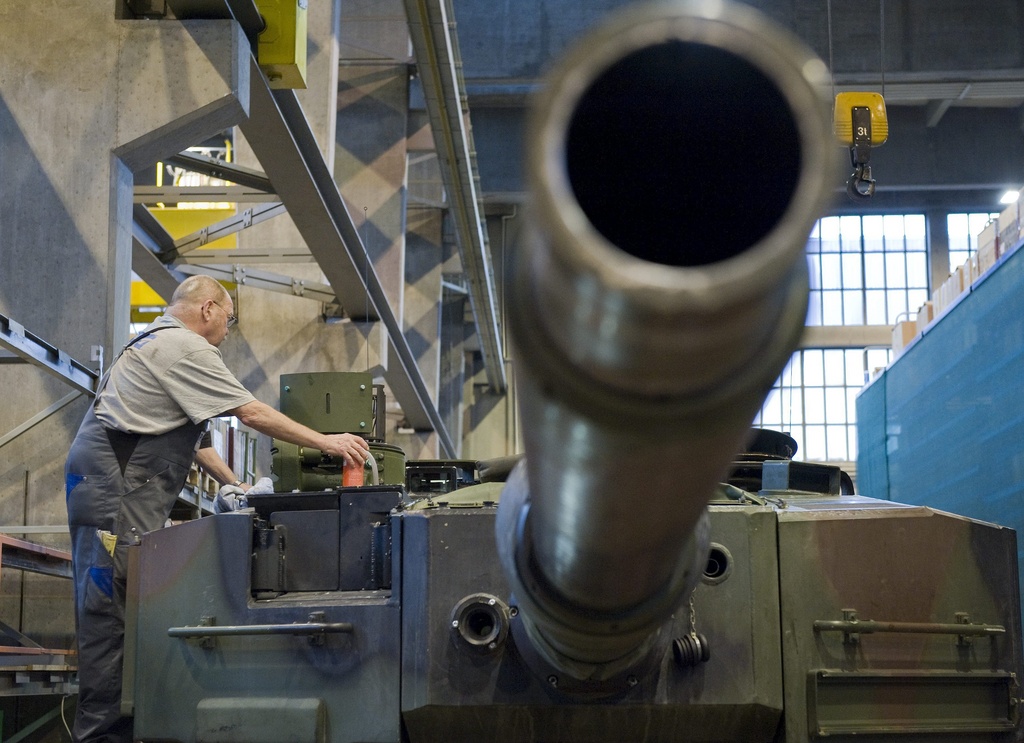Fresh allegations Swiss bombs being used in Syria

Switzerland exported nearly half a billion francs worth of war materiel in the first half of this year, according to figures released on Thursday amid fresh allegations that Swiss-made hand-grenades are being used by rebel groups in Syria.
Swiss television reported on Wednesday night that HG85 hand grenades made by Swiss company Ruag – which is majority-owned by the Swiss government – were being used by rebels in the Free Syrian Army in Aleppo.
The “Rundschau” programme broadcast footage which it said were Syrian rebels in possession of Swiss hand-grenades. It said that they had arrived in Syria via Jordan and Turkey.
If proven to be true, this would be in violation of export contact conditions imposed by Switzerland which expressly forbid the resale of Swiss war materiel.
Following allegations which first aired in July that Swiss war materiel was being used in Syria, the State Secretariat for Economic Affairs (Seco) imposed a temporary ban on exports to the United Arab Emirates. That ban was later lifted pending the outcome of a joint Swiss/UAE investigation into whether a shipment of grenades sold to the UAE in 2003 had in fact ended up in Syria.
In response to the latest allegations, Seco told Rundschau that it could not comment on ongoing investigations.
Sensitive exports
Figures released by the Federal Customs Administration on Thursday show that Switzerland exported SFr415 million ($425 million) worth of war materiel in the first half of this year – some SFr87 million more than for the same period last year.
The increase is explained by the sale of Pilates training aircraft to the UAE, which has imported SFr132 million in Swiss war materiel this year and is the second highest buyer behind Germany which imported SFr146 million of materiel.
Italy, the United States, Britain, Romania, Saudi Arabia and India are also significant buyers of Swiss war materiel. Since export conditions were tightened in the wake of the Arab Spring, no materiel was exported to Israel or Egypt.
Swiss arms exports have regularly made the news headlines in recent years. Last year, the government froze exports to Qatar after it was revealed that the munitions sold to the Gulf state were being used by Libyan rebels fighting to bring down Moammar Gaddafi.
In 1972, pacifists launched the first of three initiatives to ban the export of arms which was narrowly defeated. Swiss voters have rejected a further two initiatives aimed at banning exports of war materiel. The latest in 2009 was soundly defeated, gaining the support of just 32 per cent of voters.
Exports of war materiel again hit the headlines in July 2011 when it was revealed that munitions sold to Qatar had shown up in Libya in an apparent breach of export regulations.
Seco imposed an immediate ban on exports to Qatar which it lated lifted saying that a “military logistics error” was to blame.
Seco imposed a temporary ban on exports to the United Arab Emirates in July when allegations first arose that Swiss-made hand-grenades were being used in Syria. The ban was lifted pending the outcome of a joint investigation by the two countries.

In compliance with the JTI standards
More: SWI swissinfo.ch certified by the Journalism Trust Initiative












You can find an overview of ongoing debates with our journalists here . Please join us!
If you want to start a conversation about a topic raised in this article or want to report factual errors, email us at english@swissinfo.ch.